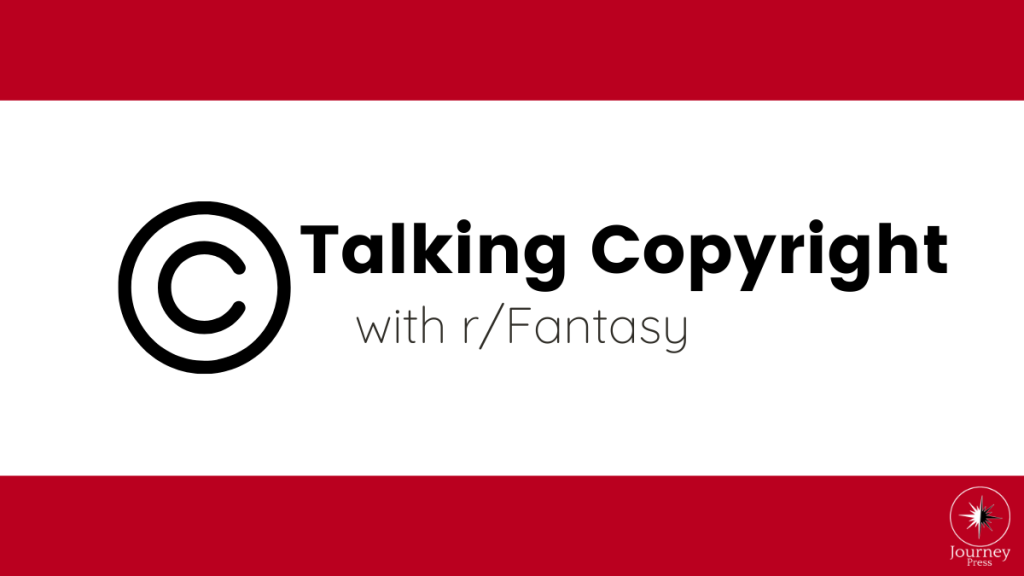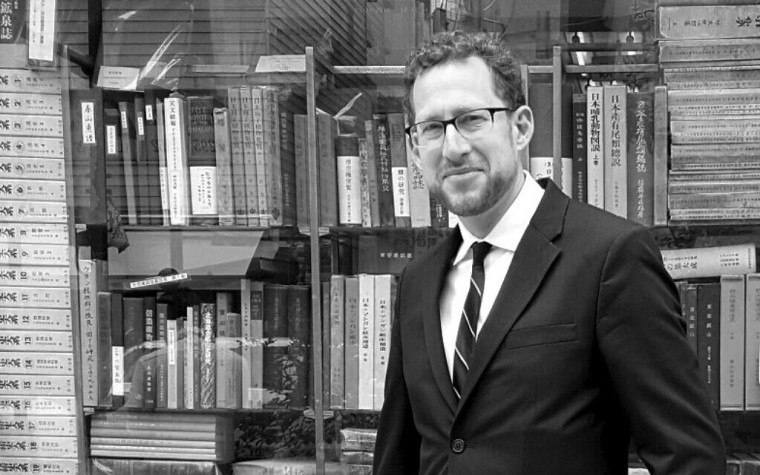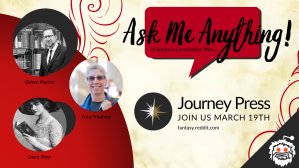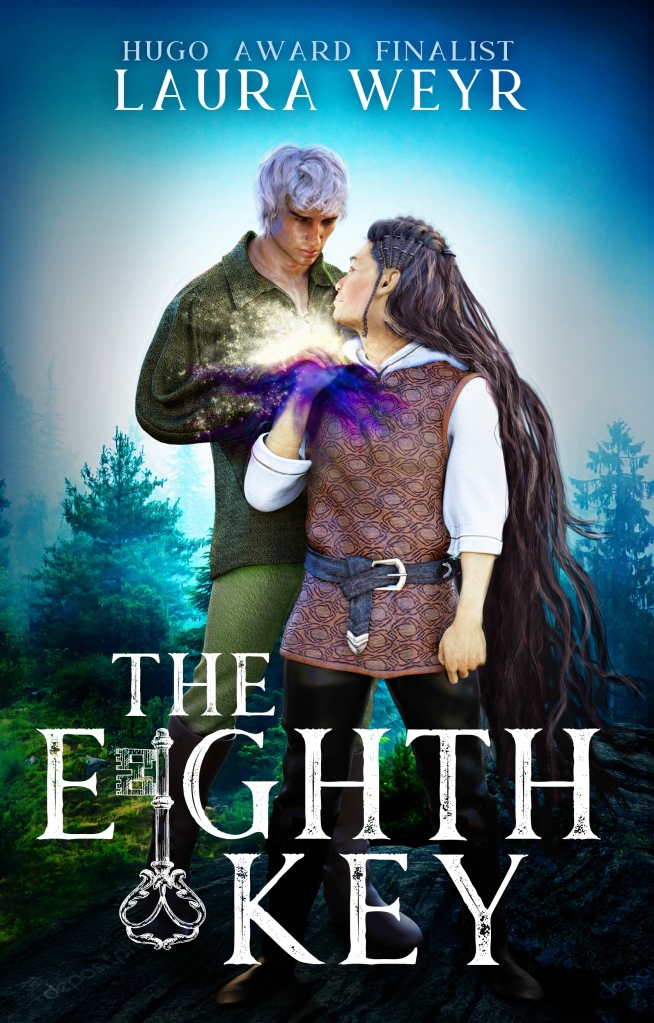
Last Friday, we had a lovely and quite successful Small Press AMA (Ask Me Anything) on the fantasy subreddit. We had a slew of excellent and varied questions from lots of readers, and it really gave us a chance to explore our motivations for writing, discuss what inspires us, divulge behind-the-scenes tidbits on the creation process, and talk about some of the more abstruse aspects of publishing.
One of our attendees had this interesting question:
I have some questions about copyright. General and perhaps rather specific. Fortunately r/fantasy is a subreddit with strict rules where piracy is concerned but the prevalence of piracy / copyright infringement -on reddit in general and on other online fora- is perhaps something the hosts/moderators/administrators as well as the guests could address as part of this AMA.
I’m particularly curious about authors’ and publishers’ perspectives on piracy reporting rules – on reddit and other online fora. Such rules appear to assume that permission to publish or distribute is granted unless the copyright owner complains. Such rules thus appear to reverse the onus. Reporting rules also frequently restrict who may complain about copyright infringement, allowing only the copyright owner and/or their legal representatives to file a report.
Copyright has been a hot topic recently: Twitter was aflame with discussion on one person’s take that copyright should be limited to thirty years. Two years ago, the Public Domain grew for the first time in decades with the copyrights on all of the works published in 1924 finally lapsing. Authors, publishers, readers, and creators of derivative works all have their own opinions on the matter.
It’s a subject we at Journey Press are keenly interested in, and I think our replies comprise a nice cross-section of our views:

Gideon Marcus (founder, Journey Press)
Well, firstly, if my works are ever so popular that they are widely pirated, I’d probably consider that a success… (no, that is not license to pirate. Please buy our books. We try to keep them reasonably priced. 🙂 )
Anyway, it’s my understanding that this is how it works: Every site puts up a DCMA page and waits. If someone complains, they review and crack down. Copyright claims are something the owner has to enforce.
That said, unlike trademarks, it’s not a “use it or lose it” situation. If someone pirates Kitra and makes a million dollars selling bootleg copies on Amazon or elsewhere, our first action will be to ask their secret. The next will be to sue them for a million dollars. 🙂 (Or go into partnership).
I actually have very strong opinions on copyright, not so much the length (though death plus seventy years seems overlong), but the fact that current law has resulted in a ridiculous number of orphaned works as well as a corporate stranglehold on profitable properties.
Laura Weyr (author, The Eighth Key)
The question of copyright is certainly a complex one, and none of us are lawyers.
Personally, I believe that modern publishing copyright law has become overly-restrictive in the USA (which is the only copyright law I’m even remotely familiar with). This is all based on my personal understanding, and should not be taken as legal advice.
There are two parts to copyright law:
- Restricting the ability to reprint and profit the original work to the original creator, or whomever the creator has sold or willed the right to do so to.
- Restricting the ability to create derivative works based on the original work to the original creator, or whomever the creator has sold or willed the right to do so to.
I fully believe that a creator should have sole control over the ability to profit from their own work or derivative works for a period of time. The original copyright law in the US Constitution was 14 years, with the option to extend it another 14 years. After this period, anyone could print the original work and sell it, and anyone could create derivative works based upon it.
However, because the US has extended and extended the copyright (mostly for the benefit of corporations like Disney and DC comics) the copyright period is now the entire period of the author’s life plus 70 years. This creates a situation where many works are lost because no one knows who owns the copyright now, or when the author died, or whether something is still under copyright or not. Part of the reason Journey Press is working with heirs of estates of authors like Rosel George Brown is to bring back some of these amazing stories. But Journey Press can’t save everything, and many wonderful stories will be lost as the magazines and books they were printed in disintegrate over time.
This doesn’t even get into derivative works, and how Disney built its empire on derivative works (Snow White, Cinderella, Sleeping Beauty) but now legally pursues others who make derivative works based on these properties and their own.
There are many ways copyright law could be changed in a way that would allow potentially lost works to be preserved but could still protect authors’ right to sell their original work or create derivative works based on it. One idea would be a “use it or lose” it policy, where if an owner doesn’t re-print or create a derivative version based on their work after the initial period of, say, thirty years, the original work becomes public domain. Another option would be to have a registration fee that goes up by a factor of 10 every ten years ($10, $100, $1000, $10,000, $100,000, etc) which would force corporations to decide between re-registering copyright and allowing a property to go into public domain. Both of these suggestions have issues with them, not the least of which is that they favor those who can afford to do the required actions. But they are a starting point, from which the concept of copyright can be re-imagined in a way that both incentivizes and protects authors (the original purpose of copyright law) but doesn’t prevent reprinting or re-imagining of works in the future.
Again, this is my personal opinion and based on my own limited understanding. It should not be taken as legal advice.

Erica Friedman (author, By Your Side: The First 100 Years of Yuri Manga & Anime)
I have a lot of thoughts about this.
Firstly, platforms like reddit, Youtube and others have allowed copyright to be weaponized, and also made it unenforceable. We all know that some subreddits and YT channels and other forums encourage and allow sharing links to illegal distribution channels for licensed materials. I can’t report these as an concerned bystander and there are too many for small copyright holders to monitor. Only large companies ever have the means, so it becomes unenforceable for a small rights holder. In the meantime, claim jumpers and copyright hunters, as well as larger legal depts will slam anything and everything with takedown notices, forcing users who have Fair Use claims to waste time proving they have the right to a short clip in an educational video.
Copyright is meant to give the creator the right to be the one to make copies. I hate that companies like Google and reddit make it easy to ignore this, as long as they aren’t held responsible.

Obviously, copyright is a complicated issue, and as it stands, is both boon and bane to creative endeavors. As a publisher, writer, and historian, I have multiple conflicting perspectives on the matter. My answer was the least comprehensive and the most flip, so please let me expand.
With regard to unauthorized printing, to some extent any distribution is valuable distribution. For instance, Neil Gaiman has described book piracy as a net positive for his sales. It’s essentially free advertising.
Another famous example that we’ll be discussing at Galactic Journey next month is Ace Books’ republishing of the Lord of the Rings saga in the mid 1960s. Ace had believed (or so they say) that the copyright had run out in the United States, and so they printed the first mass market paperback set. These books were hugely popular, responsible for a surge in popularity of Tolkein’s creation. Tolkein, still alive at the time, made threatening noises, whereupon Ace offered him royalties in the amount of ~$6,000 (around $50,000 today).
Tolkien promptly endorsed the Ace editions (and then, seeing there was money in it, had Ballantine come out with official ones).
On the other hand, you have things happen like the suffering Martha Wells went through when her works were widely pirated without attribution, which does not benefit the original author and is just plain evil. And even where the author is attributed, the pirated author may not have the spoons or resources to deal with it, much less turn the lemons into lemonade. So I’m not endorsing piracy — just explaining my somewhat-in-jest comments upstream.
Other issues: the Public Domain is incredibly valuable. Books in the Public Domain are freely publishable and frequently are (places like Project Gutenberg make such works available to everyone regardless of location or economic circumstance). These stories provide endless inspiration for derivative works, catalyzing new stories.
In fact, there is potentially a huge market for derivative works, and the portion of the law that covers them is often dismissed or ignored by copyright supporters. If copyright is meant to incentivize creative works, why should it continue to protect derivative works long after the original creator’s death? Why should only the creator’s inheritors have the right to create works based on the original creation? There’s no evidence that the ‘copyright holder’, whomever that may be, will somehow make ‘better’ derivative creations than the original author. In fact, copyright is crushing a huge potential source of creativity and profit by limiting derivative works so strictly and for such a long period of time.
And while copyright is valuable to protect the ability of authors to profit from their own hard work, the current copyright regime has resulted in a dramatic number of works from the 1920s through the 1990s to remain unrepublished. The rights owners don’t see the money in keeping them available (or in many cases don’t even know they own the rights). Unpublished books help no one. There’s got to be a better way.
Long story short: There’s no “right” or “wrong” position with regard to copyright. There are pros and cons with the current system, as there are with any proposals to fix it.
I’d love to hear your feelings on the issue!


